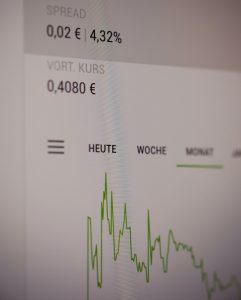The foreign exchange market, also known as the forex or FX market, is the largest and most liquid financial market in the world. It operates 24 hours a day, five days a week, allowing traders to buy and sell currencies around the clock. However, there are specific times when the market is more active, and knowing when the forex market closes daily is crucial for traders to plan their trades and manage their risks effectively.
Forex Market Hours
The forex market is open 24 hours a day from Sunday at 5 pm EST to Friday at 5 pm EST. During this time, there are three major trading sessions: the Asian, European, and North American sessions. Each session has its own unique characteristics in terms of trading volume, liquidity, and volatility.
The Asian session starts at 5 pm EST on Sunday and ends at 4 am EST on Monday. It is the least volatile of the three sessions, with low trading volume and liquidity. The major currencies traded during this session are the Japanese yen, Australian dollar, and New Zealand dollar.
The European session starts at 3 am EST and ends at 12 pm EST. It is the most active session, with high trading volume and liquidity. The major currencies traded during this session are the euro, British pound, and Swiss franc.
The North American session starts at 8 am EST and ends at 5 pm EST. It is the second most active session, with high trading volume and liquidity. The major currencies traded during this session are the US dollar and Canadian dollar.
What Time Does Forex Market Close Daily?
The forex market technically never closes, but there are times when trading activity slows down significantly. The market closing time refers to the time when the last major session ends and the next major session begins.
The Asian session closes at 4 am EST, and the European session opens at 3 am EST. This one-hour gap is the least active period of the forex market, with low trading volume and liquidity. It is also known as the “dead zone,” and traders are advised to avoid trading during this time.
The European session closes at 12 pm EST, and the North American session opens at 8 am EST. This four-hour gap is the most active period of the forex market, with high trading volume and liquidity. It is also known as the “overlap” period, and traders can take advantage of the increased volatility during this time.
The North American session closes at 5 pm EST, and the Asian session opens at 5 pm EST on Sunday. This 12-hour gap is the longest period of the forex market, and it is characterized by low trading volume and liquidity. It is also known as the “weekend gap,” and traders should be cautious when trading on Sunday evening as prices can be unpredictable and volatile.
Why Knowing the Forex Market Closing Time is Important
Knowing the forex market closing time is essential for traders to plan their trades effectively and manage their risks. Trading during low liquidity periods can result in wider bid-ask spreads, increased slippage, and higher transaction costs. On the other hand, trading during high volatility periods can result in rapid price movements and increased risk of losses.
Traders should also be aware of the different time zones and daylight saving time changes, as these can affect the opening and closing times of the forex market. For example, during daylight saving time in the US, the European session opens at 2 am EST instead of 3 am EST, and the North American session closes at 4 pm EST instead of 5 pm EST.
In conclusion, the forex market is open 24 hours a day, five days a week, but there are specific times when the market is more active and volatile. Knowing when the forex market closes daily is crucial for traders to plan their trades effectively and manage their risks. Traders should be aware of the different trading sessions, the “dead zone,” the “overlap” period, and the “weekend gap” to optimize their trading strategies and achieve their trading goals.





